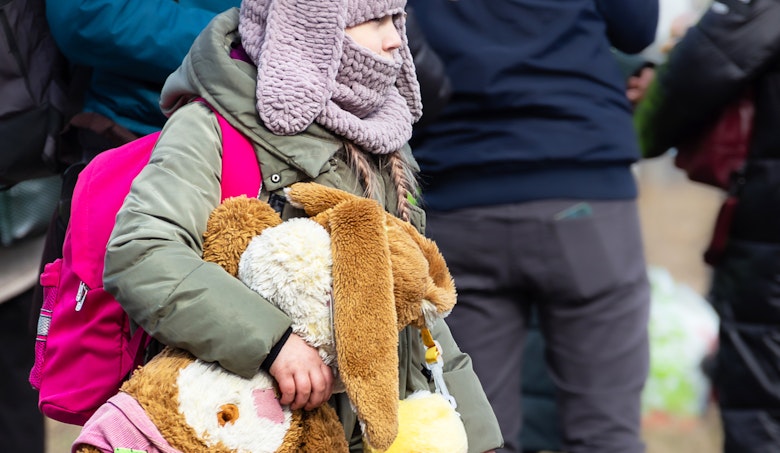The six ways Terre des Hommes is helping refugees from Ukraine
Terre des Hommes helps in Ukraine and surrounding countries. This is what we do:
1. Emergency relief and psychosocial support in Moldova and Romania
In Moldova and Romania, we work with local civil society organisations and volunteers for the violently displaced population from Ukraine. Through our partner National Center for Prevention of Child Abuse, we are providing psychosocial assistance to refugees in shelters. Teams consisting of psychologists, social workers, and emergency workers organise sports and game activities for children to assess their well-being and refer them to specialised help if necessary.
2. Child helplines
Terre des Hommes, in partnership with Child Helpline International, works to ensure that children who are internally displaced in Ukraine or who have fled Ukraine and are currently in a neighbouring country (Poland, Romania, Slovakia, Hungary) have access to reliable, high-quality child helplines for mental health and psychosocial well-being, as well as other essential information, guidance and referral.
3. Talking groups & first safe shelter in Poland
In Poland, there are talking groups for mothers and their teenagers and we help refugees with non-food items, a first safe shelter, psychosocial care and all kinds of practical information.
4. Mobile teams in Romania
Our sister organisation Terre des Hommes Switzerland (Lausanne) has (had) offices in Kiev, Mariupol and Severodonetsk. Due to ongoing fighting, the offices in the latter two cities are inactive, but Terre des Hommes International is working with mobile teams to provide psychosocial support to children and caregivers, create and furnish child-friendly spaces, and train educational professionals to provide psychosocial activities in a number of locations along the border and in Romania's capital.
5. Child friendly spaces' in Poland
With Terre des Hommes Italy, we are setting up four 'child friendly spaces' in Kobyłka, Poland; places where children are safe and are assessed for mental health problems through sports and play activities.
6. Psychological first aid for children and mothers in shelters
Together with War Child we train mobile teams within the National Centre for the Prevention of Child Abuse (CNPAC) to provide psychological first aid to children and mothers in shelters. The teams consist of psychologists, social workers, and emergency personnel. Together, they are on the job day and night to give children the opportunity to participate in games and activities specifically designed to assess their state of mind - and help them cope with painful emotions. During these sessions, the teams also provide practical information and support to parents and refer children who need it to more specialised agencies.

